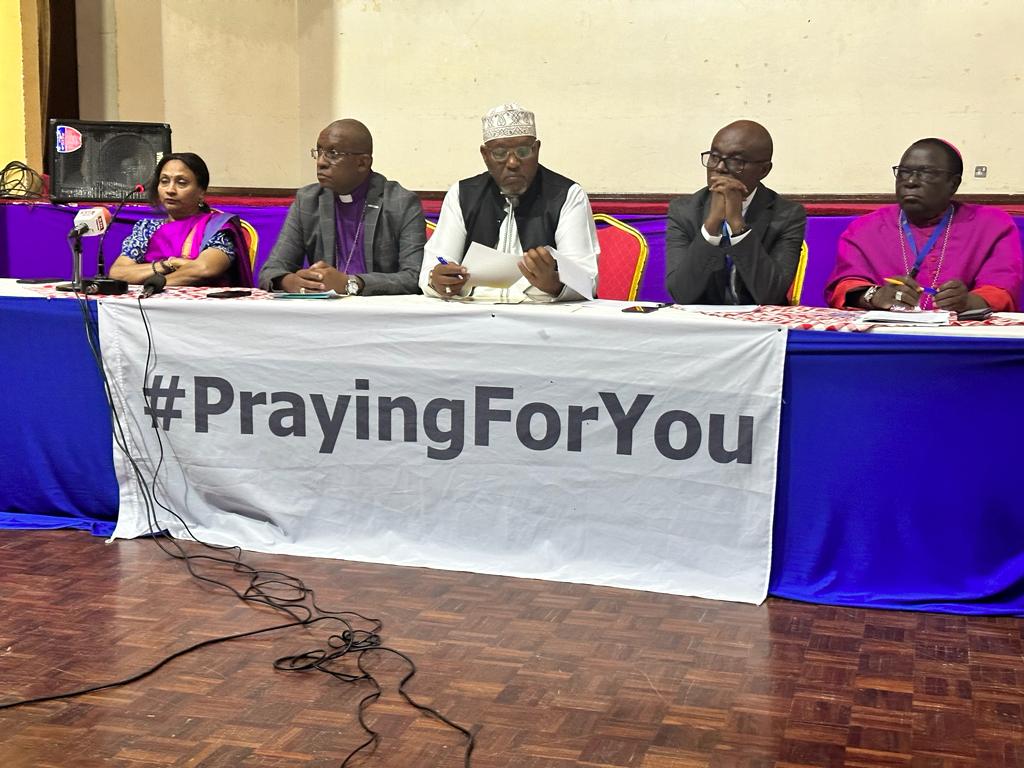Faith leaders have accused the Global North of hijacking the ongoing Africa Climate Summit in Kenya as well as condemned the inaction by those responsible for the climate crisis.
In a statement read at the historical Ufungamano House in Nairobi, both Christian and Muslim communities from diverse denominations said that the event ignored the most crucial voices in the effort to address the climate crisis.
The leaders also made six demands on the sidelines of the Africa Climate Summit, seeking immediate action rather than delay or statement of ambitions.
Beginning with Climate Finance, they said that they were cognizant of the fact that there has not been adequate financial support directed to the African continent despite efforts and commitments from the developed countries to avail the same.
“The African Climate Summit presents an opportunity for developed countries, who have contributed the most to the climate crisis, to move beyond rhetoric and deliver on long-due finance,” they said.
The leaders pushed for funds to compensate victims of Loss and Damage, adding that the continent anticipated “severest adverse effects of human-induced climate change, compared to most other regions of the world due to a relatively low adaptive capacity”.
Also, they called for Youth and Green Jobs”, in recognition of the demographics’ growth in numbers. According to them, African leaders must adopt a plan of action with robust policy and regulatory measures necessary for African countries to implement and support the growth of inclusive green economies that can provide jobs for the youth.
The leaders also demanded support for research and innovation to advance greener economic diversification and growth, strategies that facilitate the development of financial solutions among others.
The fourth demand was on Climate Adaptation, with a call for the African Climate Week to “have clear implementation plans on the strengthening of adaptation actions and resilience against the consequences of the climate crisis as one of its core outcomes”.
The faith leaders also addressed Fossil Fuel Phase-out and supported Renewable energy access, as well as Agriculture, Food Security and Sovereignty.
“As guardians of spiritual wisdom and moral guidance, we are disheartened by how actions to tackle climate change fall short of the required urgent ambition,”they said.
In the statement, they maintained that the values of stewardship, empathy, justice, equity and solidarity as enshrined in “our faith traditions must guide every decision and action that is taken at the Africa Climate Summit and Week,”.
In his reaction after reading the statement yesterday, Sheikh Ibrahim Lethome of the Islamic Religious Council said that the youths were crucial in achieving action through agriculture and several sectors. He emphasized the need for the voices of faith leaders in climate change discussions, as a moral guide to the rest of the world to restore Mother Earth’s well-being.
“I have never seen someone buy a car but use it in ways that are not stated in the user manual. I have never seen anyone add porridge, black tea or soda to a fuel tank. Religion is an asset in reclaiming our environment. God created what’s good for us, and we need to follow the user’s manual. Our hope lies in going back to the user’s manual. We need to guide politicians. It is never about the cart leading the horse,” he said.
The cleric asked African leaders to have the interest of the continent at the summit that was condemned for locking out many and looking like lecture halls.
On his part, Bishop Chediel Elinaza Sendoro from Tanzanian called for the reclamation of the faith’s place in ensuring societal well-being and encouraged youth to stay on course in the fight to stop the climate crisis.
Also, Bishop Hassan Kukah from Nigeria asked youth to “decide what type of seat they want at the decision-making table”, and called for personal responsibility to achieve climate action.
“As we apportion God and governments blame and responsibility for the climate crisis, we must also remember to look inwards and decisively deal with corruption, locally, even as we deal with it internationally,” he said.
The cleric added that the climate conversation had to start locally and go beyond issuing statements because the young people are far more equipped and “they can borrow our voices as we seek to use their energy,”.
Sujarta Kotamraju of the Hindu Religious Council urged the youth to employ their energy and agility to demand climate justice from their leaders, while at the same time championing the well-being of the same in their surroundings. “If you take care of the environment it will take care of you.
